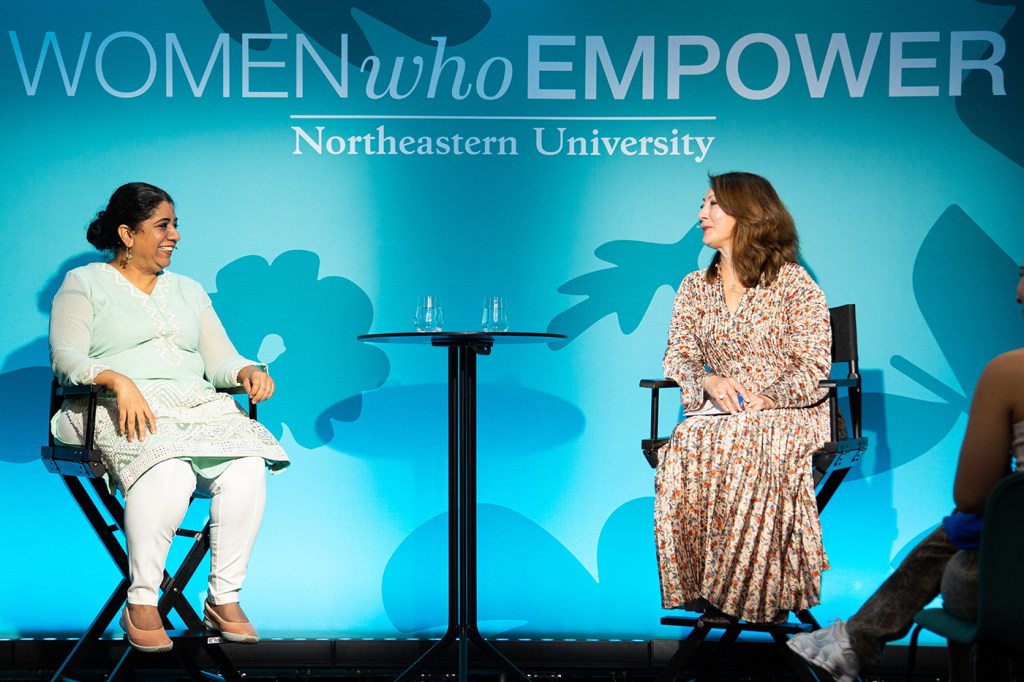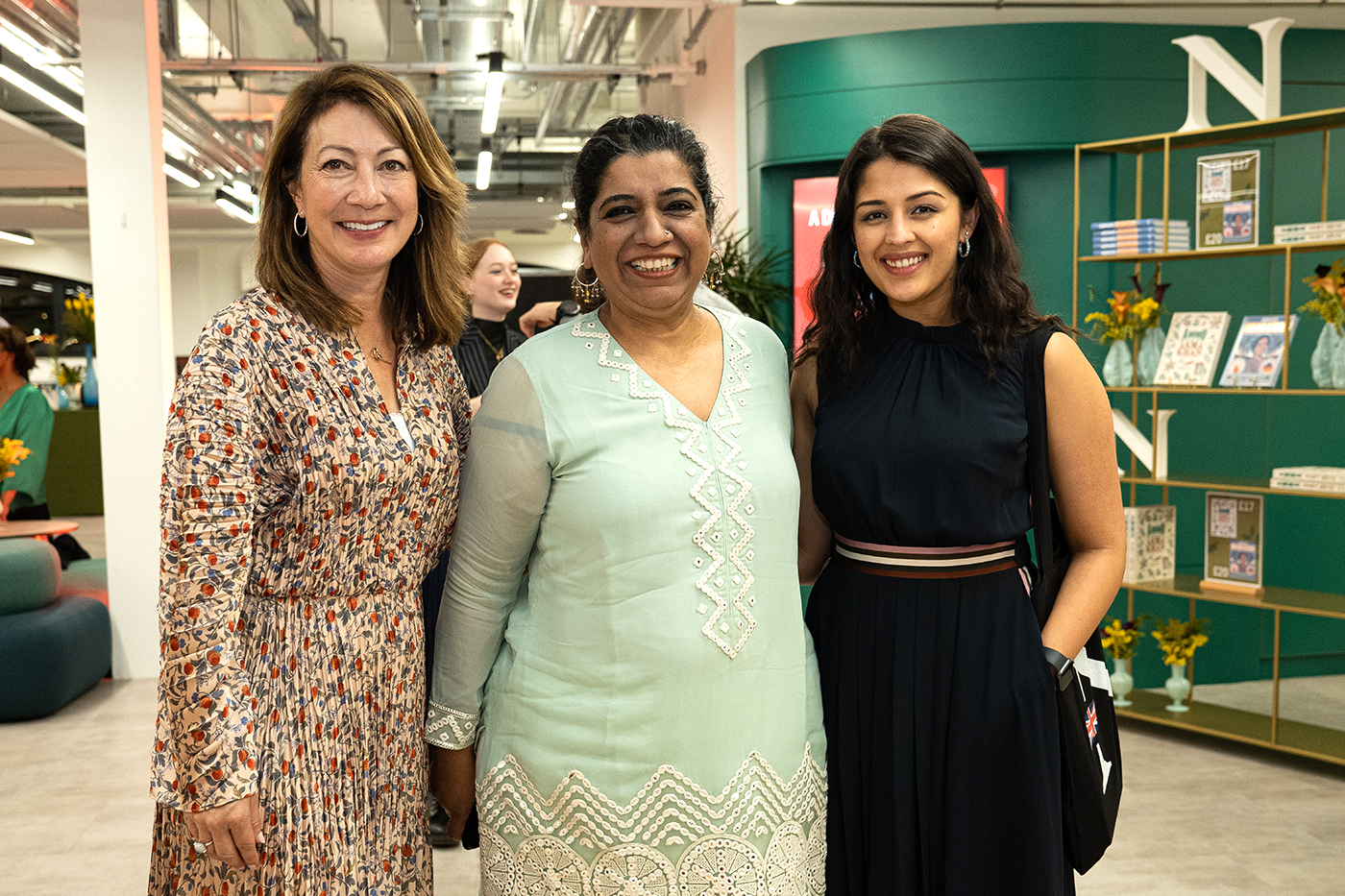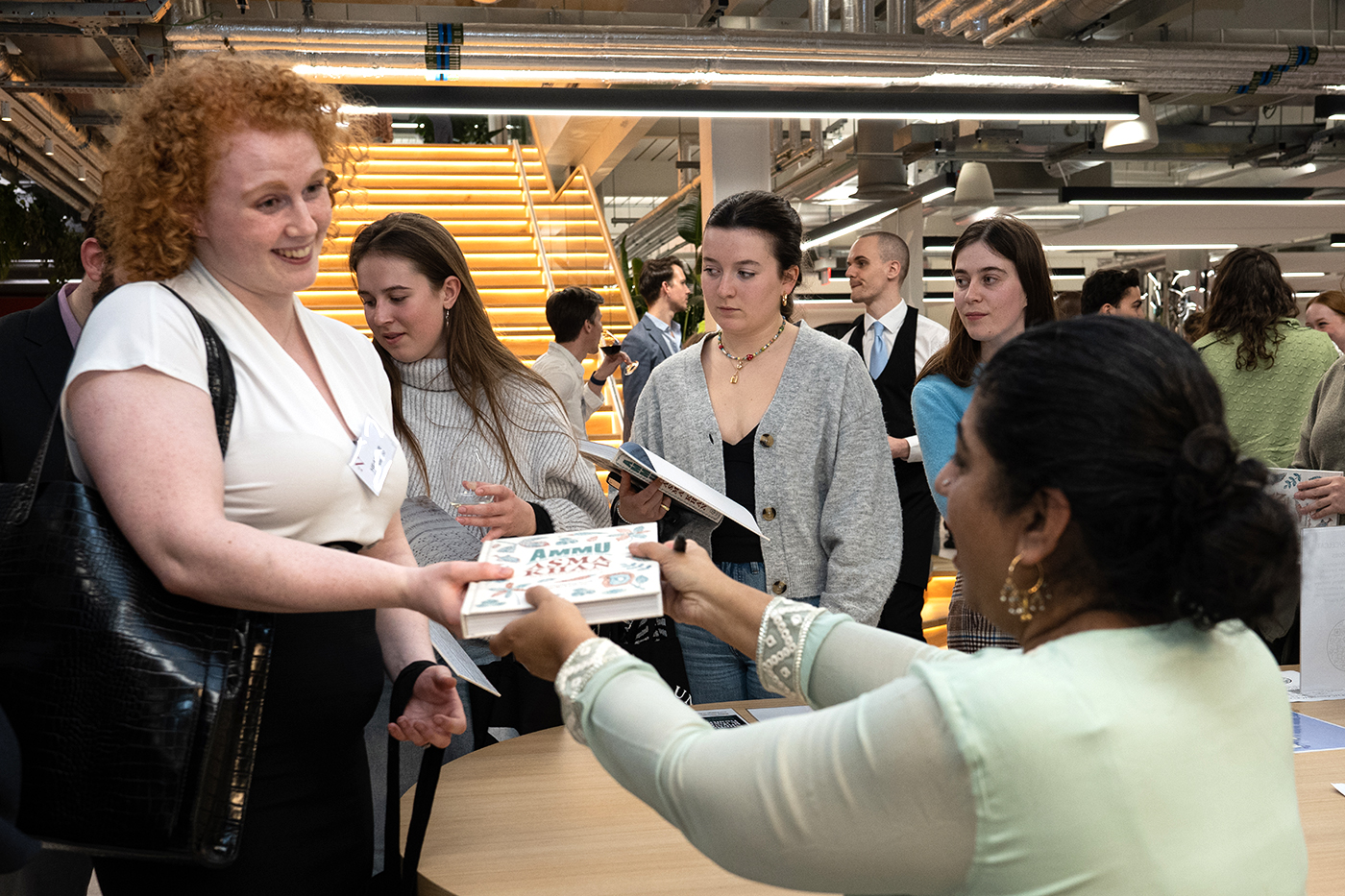The secret ingredient at this famous Indian restaurant in London is its all-female staff

“When you help someone else succeed, then you’re a leader,” said Asma Khan, chef and owner of the London-based Indian restaurant, Darjeeling Express, during a Women Who Empower event hosted at Northeastern’s London campus on Tuesday. “Real achievement comes when you’ve changed someone’s life for the better.”
Khan knows this first-hand as someone who has dedicated her career to uplifting women in the male-dominated restaurant field and beyond. Her restaurant, which was recently featured in the Netflix show “Chef’s Table,” is run by a female-only staff, the only Indian restaurant of its kind in the world.
All of Khan’s employees are immigrants from south Asia, and many of them are second-born daughters, a birth standing that, in many countries such as Khan’s native India, is considered a disappointment and a burden on the family. To have one daughter is acceptable, if less desirable than a son, she explained. But two daughters in a row is considered unfortunate.
“When your birth is viewed as a death, it’s important to remind those women that they can set the world on fire,” she said during her conversation with Diane MacGillivray, senior vice president for university advancement and founder of the Women Who Empower initiative.


As a second-born daughter herself, Khan grew up with an extraordinary pressure to prove her worth. Today, the 52-year-old renowned chef, author, businesswoman and activist has far exceeded expectations and even jokes that she is her mother’s favorite child.
In addition to her restaurant business, Khan also runs a charity organization called the Second Daughters Fund, which aims to reverse the tradition of mourning the birth of daughters in certain regions of India.
“We couldn’t go to these villages and tell people to stop treating their daughters like burdens,” she said. “But we can send them packages with sweets and fireworks to show people that daughters are a cause for celebration.”
After sharing her story, Khan spoke to the women in the audience, many of whom were Northeastern students and alumni, about how they can apply the lessons she has learned in her career to their lives.
Most importantly, Khan espoused the necessity of leveraging one’s network of connections. Khan, who has a Ph.D in British Constitutional Law, is grateful for her degree, despite following a different career path.
“I’ve never regretted my education because this is how I’ve cultivated my network,” she said. “As members of the Northeastern community, your connections will support you. You can tap into this network to achieve your goals and inspire change.”
At the end of the discussion, Khan returned to her driving ethos—that real success can only be achieved through helping others—to remind members of the audience that any honorable legacy must exceed the interests of the self.
“Your footprint must be bigger than your foot,” she said, nodding to the achievements of her life’s work to empower immigrant women.
For media inquiries, please contact media@northeastern.edu.